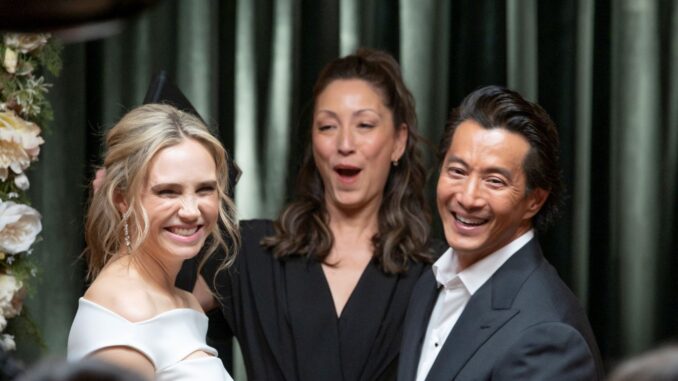
After seven emotional seasons, The Good Doctor has officially closed its last case. What started as a bold adaptation of a South Korean drama became one of network television’s most talked-about, emotionally driven, and socially relevant series in recent years. Now that it’s over, fans are left with one haunting question: What will we do without Dr. Shaun Murphy every week?
The final season of The Good Doctor was more than just a curtain call. It was a masterclass in storytelling, character development, and emotional payoff. It gave us closure, surprises, full-circle moments, and one last chance to say goodbye to a world that has become a second home for millions of viewers.
First and foremost, the growth of Dr. Shaun Murphy was nothing short of remarkable. From a socially awkward, overwhelmed surgical resident in Season 1 to a confident, emotionally grounded surgeon and husband in Season 7, Shaun’s arc has been one of the most compelling on television. In the final season, we saw him confront fatherhood, challenge the boundaries of his emotional capacity, and prove — not just to others, but to himself — that he could thrive in every aspect of his life. His evolution wasn’t exaggerated or rushed. It was steady, real, and sometimes painfully slow — like real growth tends to be. That authenticity is something many shows fail to maintain in their later seasons. But The Good Doctor never sacrificed its emotional core for dramatic effect. It stayed true to Shaun’s voice and vision until the end.
The final episodes didn’t shy away from tough themes, either. Viewers were faced with ethical dilemmas, unexpected character departures, and heartbreaking moments that reflected the uncertainty of real-life medicine. But what made these episodes powerful wasn’t just the drama — it was the humanity. For example, when Shaun faced a medical crisis involving his own family, fans witnessed one of the most vulnerable moments in the entire series. It wasn’t about saving a stranger on an operating table. It was about saving someone he loved — and finding the strength to let others help him for once. That emotional reversal — from caregiver to the one needing care — was beautifully written and deeply moving. Another standout aspect of the final season was the return of familiar faces. The writers smartly brought back characters who had left the series, offering closure for long-running storylines. Seeing Claire, Dr. Melendez (in flashbacks), and even Dr. Andrews find their final moments of peace and purpose gave fans a sense of emotional completeness.

And yet, what The Good Doctor will be most remembered for isn’t a single storyline — it’s the tone it created. In a television landscape filled with cynicism, violence, and darkness, The Good Doctor dared to be hopeful. It wasn’t afraid of tenderness. It believed in empathy. It reminded us that sometimes the greatest strength a person can have is the courage to be kind in a world that often isn’t. We’ll miss the quiet brilliance of Shaun’s mind, visualized with beautiful precision on screen. We’ll miss Dr. Lim’s unwavering leadership, Park’s dry humor, Glassman’s wisdom, and Lea’s fierce loyalty. We’ll miss the rare feeling of watching a show that felt like it truly cared about people — not just characters.
There’s a certain grief that comes with the end of a show like this — especially for fans who grew with the characters for nearly a decade. The Good Doctor didn’t just entertain. It became a source of comfort, reflection, and even healing for many. Parents of autistic children saw a version of their hopes onscreen. Young medical students were inspired to pursue a profession that saves lives. And millions of viewers who often feel “different” found someone who made them feel seen. Of course, no show is perfect. Some episodes were uneven, and not every plotline landed as intended. But overall, the final season reminded us of why we fell in love with The Good Doctor in the first place — and why its absence will be deeply felt.
As we say goodbye, it’s important to remember what The Good Doctor gave us: A hero who didn’t look or act like the typical TV doctor. A reminder that empathy is not a weakness. And the powerful idea that genius can come in many forms. The operating room lights are off now. The monitors are silent. But the lessons, the love, and the legacy live on — not just in reruns, but in the hearts of every viewer who took the journey alongside Shaun Murphy.
